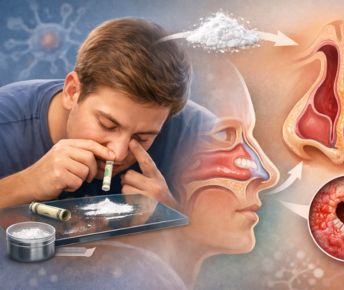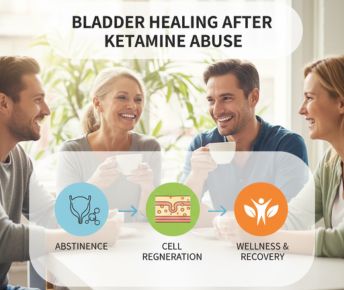Demographics and Statistics
Substance use disorder among doctors is a challenging reality that transcends borders. While exact figures can be elusive due to underreporting and stigma, studies indicate that doctors are not immune to addiction. The demanding nature of their profession, coupled with high levels of stress and access to prescription drugs, creates an environment conducive to substance abuse.
According to a study published in JAMA Surgery, approximately 15% of surgeons develop a substance use disorder at some point in their career. A similar study in JAMA Pediatrics revealed that pediatricians also face a higher risk of substance abuse compared to other healthcare professionals. Moreover, the American Medical Association (AMA) conducted a survey in 2019 which found that approximately 9% of physicians had experienced a substance use disorder in the past year.
Causes of Addiction in Doctors
1.High-Stress Environment: Doctors often work long hours, make life-altering decisions, and deal with emotionally charged situations. The constant pressure to excel, coupled with the responsibility of saving lives, can contribute to stress and burnout.
2.Easy Access to Medications: Healthcare professionals have access to prescription medications, which can make it easier for them to misuse or become dependent on these substances.
3.Stigma and Denial: The perception that doctors are infallible and should be strong role models can lead to denial of their own struggles. This stigma can deter them from seeking help.
4.Self-Medication:In an attempt to cope with stress, anxiety, or mental health issues, doctors may turn to alcohol or drugs as a way to self-medicate.
5.Lack of Support: The demanding nature of the medical profession may lead to feelings of isolation. Doctors might find solace in substances as a way to escape from their daily challenges.
Alcoholism and Drug Use in the Medical Profession
The prevalence of alcoholism and drug use among doctors is a concerning issue, both in India and worldwide. In India, a study published in the Indian Journal of Psychiatry found that approximately 21.4% of doctors in a tertiary care hospital reported some form of substance use. The study revealed that alcohol was the most commonly abused substance, followed by tobacco and opioids.
Internationally, studies have shown that doctors have a higher rate of substance use compared to the general population. The British Medical Journal reported that the prevalence of alcohol use disorder among doctors is around 10-15%. Similarly, the Journal of Substance Abuse Treatment highlighted that substance use disorders are more prevalent among physicians than in the general population.
Addressing Substance Use Disorder Among Doctors
1.Awareness and Education: Raising awareness about substance use disorder within the medical community is crucial. Medical schools and hospitals should provide education about the risks and signs of addiction.
2.Access to Confidential Help: Medical professionals should have confidential avenues to seek help without fear of professional consequences. This could involve setting up helplines, support groups, and counseling services.
3.Rehabilitation Programs:Rehabilitation programs specifically tailored to the unique needs of doctors are essential. Programs like Samarpan Recovery Centre in Pune provide a safe and supportive environment for medical professionals to address their addiction and learn coping strategies.
4.Peer Support and Group Therapy: Group therapy sessions allow doctors to connect with their peers, sharing their experiences, challenges, and triumphs. Peer support can break the isolation that often accompanies addiction.
5.De-Addiction Therapists: Skilled de-addiction therapists and substance abuse professionals play a crucial role in guiding doctors toward recovery. These therapists are trained to address the unique challenges that medical professionals face in their journey to sobriety.
Conclusion
Substance use disorder among doctors is a complex issue that requires attention, compassion, and understanding. Demanding work schedules, high levels of stress, and easy access to medications contribute to the risk of addiction within the medical profession. Recognizing the prevalence of alcoholism and drug use in the medical field is the first step toward fostering a culture of support and healing. Rehabilitation programs, de-addiction therapists, and group therapy sessions, such as those provided by Samarpan Recovery Centre, offer a lifeline to medical professionals struggling with addiction. By acknowledging the challenges and offering targeted solutions, the medical community can take proactive steps toward addressing this critical issue and providing doctors the help they need to heal and recover.
























 Yes, many offer serene environments and solid therapeutic frameworks. However, quality varies, so it’s essential to research accreditation, staff credentials, and therapeutic depth.
Yes, many offer serene environments and solid therapeutic frameworks. However, quality varies, so it’s essential to research accreditation, staff credentials, and therapeutic depth.




